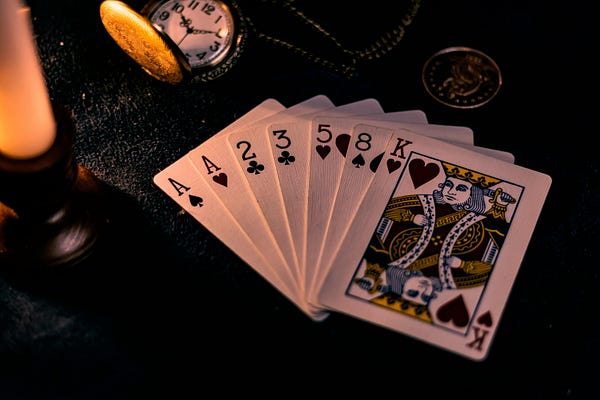The Psychology of Gambling: Why do people play casino games?

Let’s face it, casinos hold a certain mystique. The flashing lights, the clinking of chips, the promise of instant riches — it’s an intoxicating mix that’s hard to resist. But why do we risk our hard-earned cash on a game stacked against us? Buckle up, because we’re diving deep into the fascinating psychology behind why people can’t get enough of casino games.
The Dopamine Rush: A Biochemical High
Ever felt that surge of excitement when you win a bet? That’s not just a lucky feeling; it’s science, baby! Wins trigger the release of dopamine, a neurotransmitter in your brain associated with reward and motivation. Casinos are masters at manipulating this. They create an environment with near-misses, flashing lights, and unpredictable wins, keeping your dopamine levels on a rollercoaster. It’s like a biological slot machine, urging you to play “just one more time” to chase that sweet reward.
The Illusion of Control: Can You Beat the System?
Many casino games involve an element of skill, like poker or blackjack. This fuels the illusion of control, a powerful psychological motivator. We tend to overestimate our abilities, believing we can outsmart the odds with a clever strategy. Casinos are onto this, too. They offer games with just enough complexity to make us feel like strategists, even when the outcome is largely predetermined by chance. It’s a clever trick that keeps us engaged and coming back for more.
The Gambler’s Fallacy: When Randomness Feels Predictable
Have you ever witnessed a crazy long streak of red on the roulette wheel, then convinced yourself black must be “due”? That’s the gambler’s fallacy in action. We crave patterns, even in random events. This leads us to believe that after a series of unlikely outcomes, the opposite is more likely to happen — a misconception that keeps us playing in the pursuit of correcting the perceived imbalance. It’s important to remember, though, that roulette spins are completely random, and black isn’t magically due just because red showed up a bunch of times.
Social Connection and Shared Excitement
Casinos aren’t just about the games; they’re social hubs. Cheering on a winning roulette spin with a stranger or commiserating over a shared loss fosters a sense of belonging. This social aspect is particularly enticing for those who might crave connection and a feeling of camaraderie. There’s something about the shared experience of the casino that can be incredibly exciting.
Escapism and Emotional Regulation
Life can be tough, and sometimes, the allure of the casino isn’t about winning, but about escaping reality’s pressures. The intense focus required during gameplay can be a welcome distraction from daily worries. It’s a chance to zone out and immerse yourself in the thrill of the game. However, it’s important to remember that gambling shouldn’t be your primary coping mechanism for stress or emotional difficulties.
Understanding the Risks: Responsible Gambling
The psychology of gambling is a powerful force. While responsible gambling can be an exciting form of entertainment, it’s crucial to be aware of the potential pitfalls. Set limits before you start playing, track your spending, and never chase losses. Remember, the casinos are designed to be fun, but the odds are always in their favor.
So, the next time you’re considering a trip to the casino, arm yourself with this psychological knowledge. It will help you appreciate the allure of the games while ensuring you approach them with a healthy dose of self-awareness and responsible practices. After all, the most important win is knowing when to walk away — with a smile, or perhaps a story to tell!
For trustworthy responsible gambling practices, check out Khelosports They have a wealth of resources to help you stay safe and informed.

Comments
Post a Comment